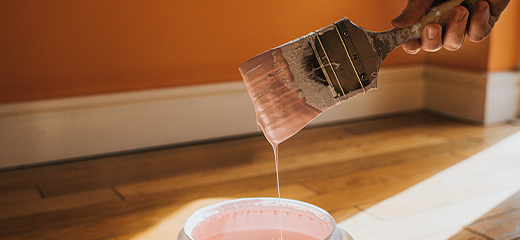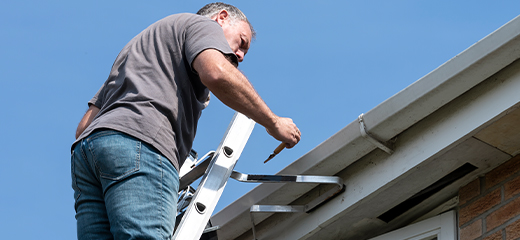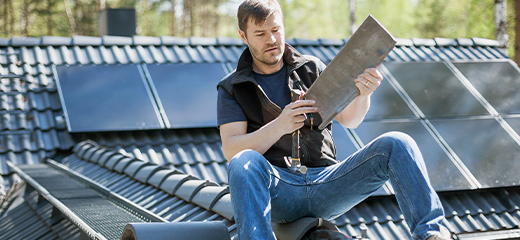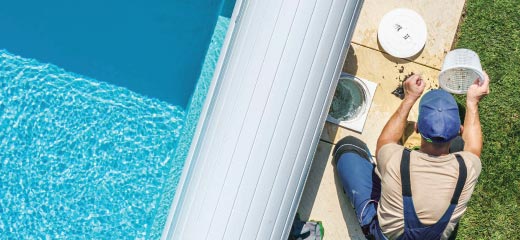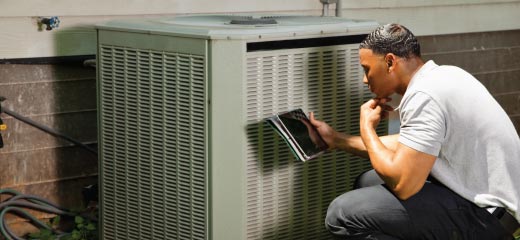
How to maintain your solar power system
A residential solar system is an investment that promises to provide benefits to your home and family for around 25 years. Whether you have just bought a solar system or are finding that your system is less productive than it used to be, then this is what you need to know about keeping it properly maintained and effective.
The good news is that solar panels have been designed to require little in the way of maintenance, even in the face of extreme weather. But low maintenance should not be confused with no maintenance, particularly if you want to get the maximum amount of electricity from your investment.
A good principle to remember is that solar systems require direct access to the sun to capture sunlight and convert it into usable electricity. This means that dust, debris and even bird droppings can have an impact on how much electricity you are able to source from your solar system.
So how often should your solar system be maintained and what should that entail? According to the experts, there are three types of maintenance that should take place during the year.
Inspection
Keeping your solar system in good condition starts with a quarterly visual inspection to make sure no problems have arisen.
- From ground level, inspect your roof for any surrounding trees or fixtures that cast shadows over your solar panels during their peak periods of operation. Eliminating these shadows will increase the amount of electricity you are able to get from your solar system.
- If your solar panels are on your roof, you will need a secure ladder that you can use to get to eye level with the solar panels.
- Make sure you have someone on the ground to provide stability to the ladder and support to you. This person can also write down any impressions or concerns that occur to you as you see them.
- Examine each panel for any damage, misalignment or loose fittings and fixtures.
- If your solar panels feature indicator lights, make sure that each panel's indicator light is on and showing the correct colour.
- Examine each panel for debris, dirt and bird droppings that could make the panels less efficient.
Any loose fittings, defects or damage should be reported to your installer, especially if a warranty is still in effect.
Cleaning
For optimal performance, your solar panels should be cleaned at least twice a year, or more often if your quarterly inspections reveal rapid build-up of dirt and debris. Cleaning is generally not required during the rainy season unless there are a lot of tall trees in your area that leaves debris on your panels during storms.
- If your solar panels are on your roof, you will need a secure ladder that you can use to safely reach and clean each of your panels.
- Make sure you have someone on the ground to provide stability to the ladder and support to you. This person can also assist by passing you cleaning tools and turning the water on and off as required.
- With a soft cloth or floor mop, remove as much debris and dirt from your solar panels as possible.
- Rinse off your solar panels with your garden hose pipe set on spray rather than a forceful stream. Do not use a pressure washer as this could damage the panels and invalidate your warranty.
- If you have stubborn dirt build-up use warm water, biodegradable soap and a long-handled squeegee used for cleaning windows. Do not use abrasive materials or any tools that could scratch the panel's surface. Once the dirt has been removed, rinse down with the hosepipe again.
Servicing
While regular inspections and cleanings can be done by a homeowner, an annual service by a specialist solar technician is highly recommended. This service takes a look at the system as a whole and ensures that it is performing optimally.
- Checks solar panels for damage, defects and performance.
- Checks the installation is still stable and ensures the earth connection is continuous.
- Ensures cabling is secure and wiring has not been damaged or become defective.
- Conducts an electrical check to ensure all components are working properly.
- Checks junction boxes for any built-up water and ensures seals and connections are intact and protected.
- Checks breakers, fuse boxes and isolators are undamaged and working properly.
- Inspects the inverters for performance, recorded faults, connection security and voltage verification.
In addition to these essential maintenance tasks, experts suggest that continuous monitoring of your system's output will enable you to identify any performance issues or system faults as they arise.
LookSee is a free home efficiency platform aimed at making homeownership easier and more affordable.

